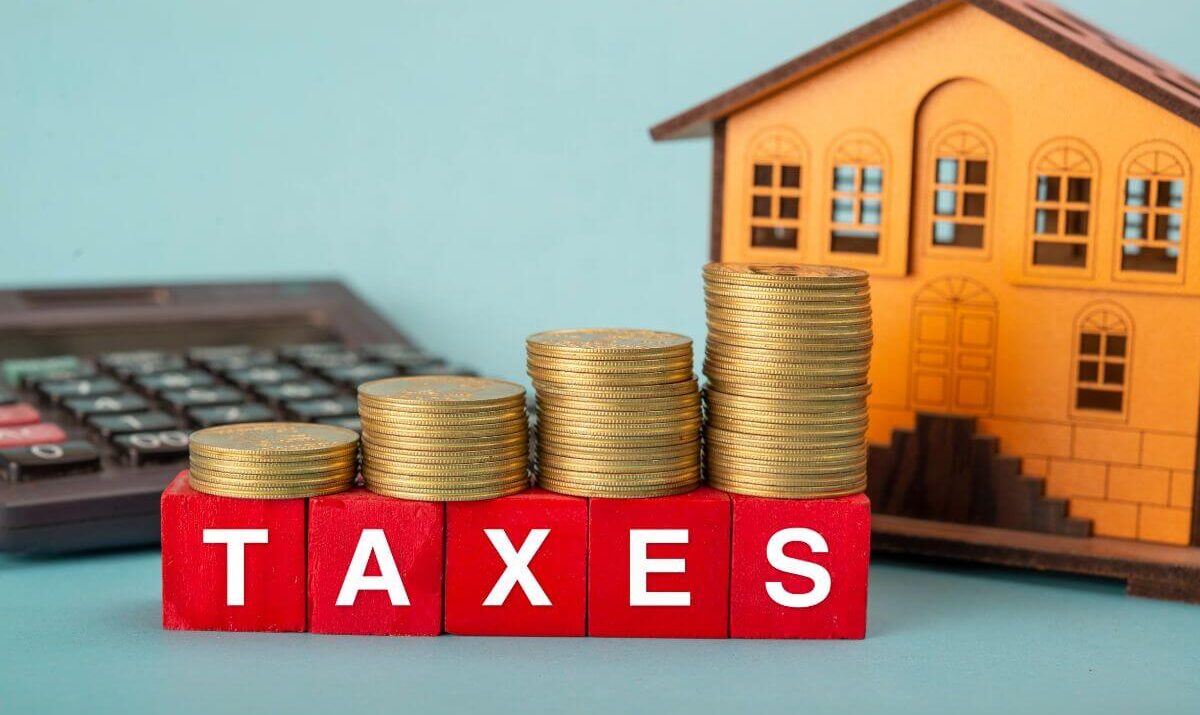Where are the highest property taxes in the US? What are they based on? There are so many questions new home-buyers need to understand before buying a property in the US.
The current inflation is making the process of buying a house a real nightmare. Beyond the initial purchase price, ongoing costs like property taxes play a major role in your monthly expenses and overall affordability.
So, if you’re considering a move, understanding property tax rates across different states can be a valuable factor in your decision-making process.
What Are Property Taxes Based On?
Property taxes are primarily based on the assessed value of your home. While assessors do not set the tax rates, their valuation of your property significantly influences your property tax bill.
Municipalities may employ different methods to calculate property taxes. In short, one common method is the mill levy, where 1 mill represents $1 of tax for every $1,000 of assessed value. Others use a straightforward property tax rate. However, the assessed value is typically determined as a percentage of the property’s fair market value.
For instance, if you own a home in California valued at $573,200 and the property tax rate for 2023 is 0.75%, you would owe $4,279 in property taxes for the year.

When evaluating the annual cash flow of a rental property, the property tax rate is just as important as the assessed value. Even in states with low average property tax rates, high property values can lead to substantial annual tax payments. Conversely, states with higher tax rates but lower property values may result in lower overall tax burdens.
But you shouldn’t just watch the property taxes, take a look at the income and other taxes in the region that you’re moving to. In the example of California, California’s income tax ranges in 9 tax brackets.
Important Considerations Beyond State Averages
These are just state averages. Property tax rates can vary significantly within each state, depending on factors like:
- County and municipality: Tax rates are often determined at the local level, with wealthier counties and desirable locations often having higher rates.
- School district: School districts with high spending often levy higher property taxes to support their programs.
- Property value: The higher the assessed value of your property, the higher your property tax bill will be.
Along with these, there are also some other things you need to take into consideration when moving. While property tax rates are an important factor, they shouldn’t be the sole deciding element when choosing a new home.
So when moving, make sure to take a look at the:
- Cost of living: Compare the overall cost of living, including housing, groceries, and transportation, to get a broader picture of affordability.
- Quality of services: Evaluate the quality of public schools, infrastructure, and other services funded by property taxes.
- Job market and amenities: Consider job opportunities, access to amenities, and overall quality of life when making your decision.

7 States with the Highest Property Taxes in the US
Finally, here is the list of 7 states with the highest property taxes in the US.
7. Wisconsin
- Effective property tax rate: 1.71%
- Median home value: $208,900
- Median real estate tax paid: $3,570
Wisconsin’s property tax rate of 1.71% means homeowners with an average property value of $208,900 are paying approximately $3,570 annually.
6. Texas
- Effective property tax rate: 1.90%
- Median home value: $232,000
- Median real estate tax paid: $4,399
Likewise, In Texas, the property tax rate is around 1.90%. With an average home value of $232,000, this results in an annual property tax of about $4,399.
5. Connecticut
- Effective property tax rate: 2.16%
- Median home value: $289,600
- Median real estate tax paid: $6,251
Despite not having the highest home values, Connecticut’s property tax rate of 2.16% translates to $6,251 in annual property taxes for the average home value of $289,600.
4. Vermont
- Effective property tax rate: 1.89%
- Median home value: $248,700
- Median real estate tax paid: $4,706
Vermont’s property tax rate stands at 1.89%. With an average home value of $248,700, homeowners are paying around $4,706 annually in property taxes.

3. New Hampshire
- Effective property tax rate: 2.09%
- Median home value: $297,900
- Median real estate tax paid: $6,235
New Hampshire has a property tax rate of 2.09%, with an average home value of $297,900. As a result, it is in an annual property tax payment of approximately $6,235, making it one of the highest in the nation.
2. Illinois
- Effective property tax rate: 2.29%
- Median home value: $227,700
- Median real estate tax paid: $5,213
Illinois breaks the 2% mark with its property tax rate of 2.29%. Despite having a lower average home value of $227,700, homeowners pay about $5,213 in property taxes annually.
1. First In The List of Highest Property Taxes in the US: New Jersey
- Effective property tax rate: 2.46%
- Median home value: $363,400
- Median real estate tax paid: $8,928
New Jersey tops the list with the highest property tax rate at 2.46% and the highest average home value at $363,400, resulting in an average annual property tax of $8,928. So, New Jersey is one of the most expensive states in the United States.










